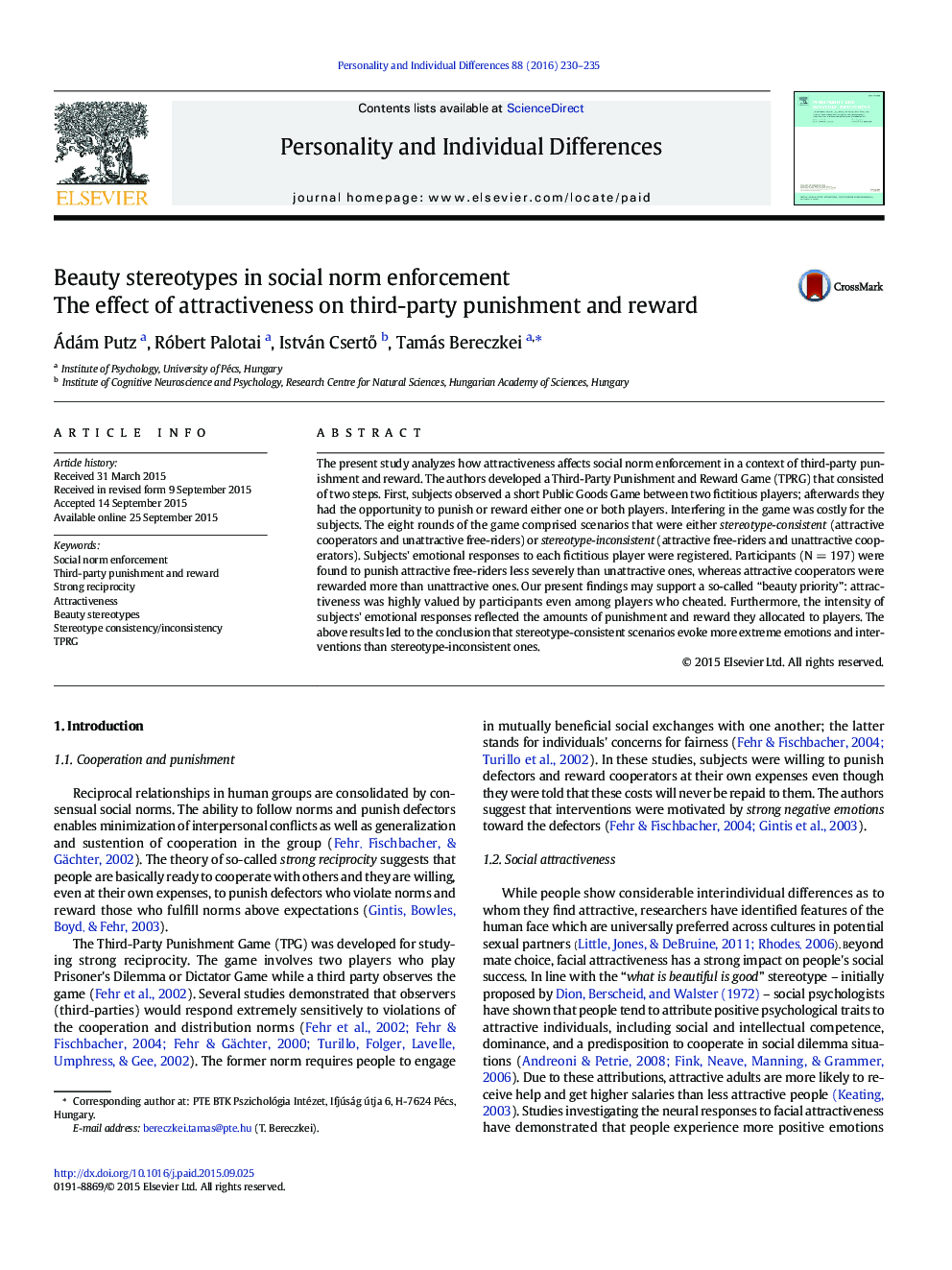| Article ID | Journal | Published Year | Pages | File Type |
|---|---|---|---|---|
| 889923 | Personality and Individual Differences | 2016 | 6 Pages |
•We developed a new method: Third-Party Punishment and Reward Game (TPRG).•Subjects punish unattractive free-riders more severely.•Subjects allocate higher rewards to attractive cooperators.•Stereotype-consistent scenarios evoke more extreme emotions.•Our findings support the “beauty priority” effect.
The present study analyzes how attractiveness affects social norm enforcement in a context of third-party punishment and reward. The authors developed a Third-Party Punishment and Reward Game (TPRG) that consisted of two steps. First, subjects observed a short Public Goods Game between two fictitious players; afterwards they had the opportunity to punish or reward either one or both players. Interfering in the game was costly for the subjects. The eight rounds of the game comprised scenarios that were either stereotype-consistent (attractive cooperators and unattractive free-riders) or stereotype-inconsistent (attractive free-riders and unattractive cooperators). Subjects' emotional responses to each fictitious player were registered. Participants (N = 197) were found to punish attractive free-riders less severely than unattractive ones, whereas attractive cooperators were rewarded more than unattractive ones. Our present findings may support a so-called “beauty priority”: attractiveness was highly valued by participants even among players who cheated. Furthermore, the intensity of subjects' emotional responses reflected the amounts of punishment and reward they allocated to players. The above results led to the conclusion that stereotype-consistent scenarios evoke more extreme emotions and interventions than stereotype-inconsistent ones.
